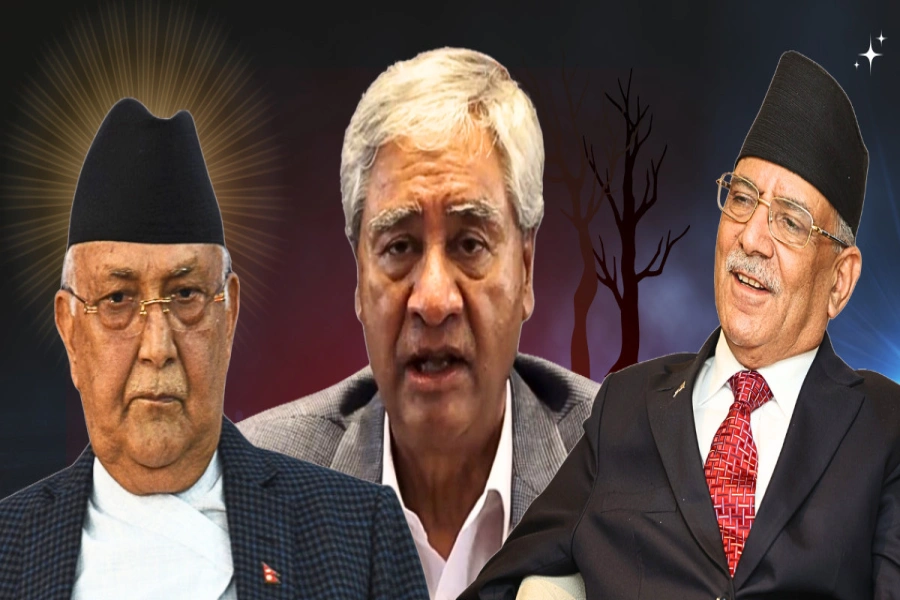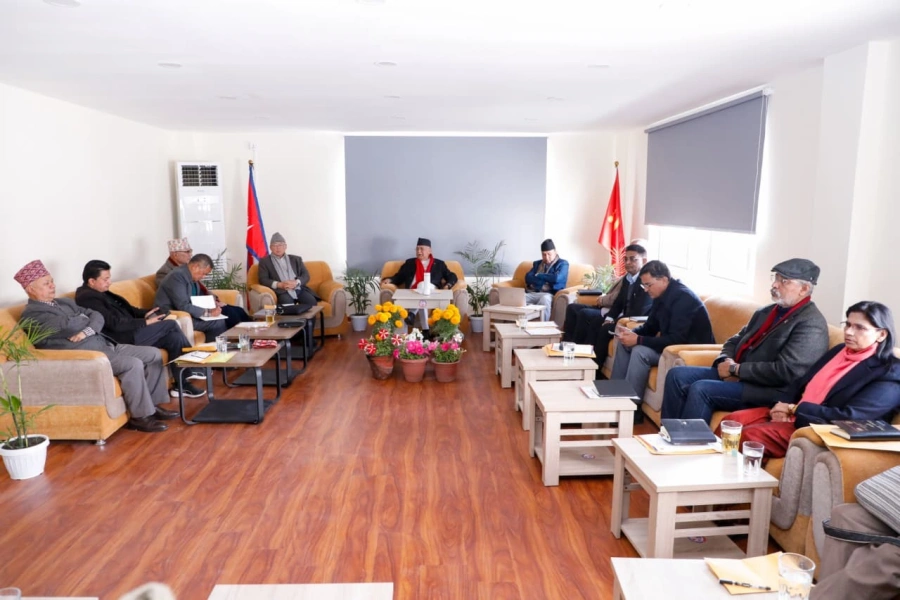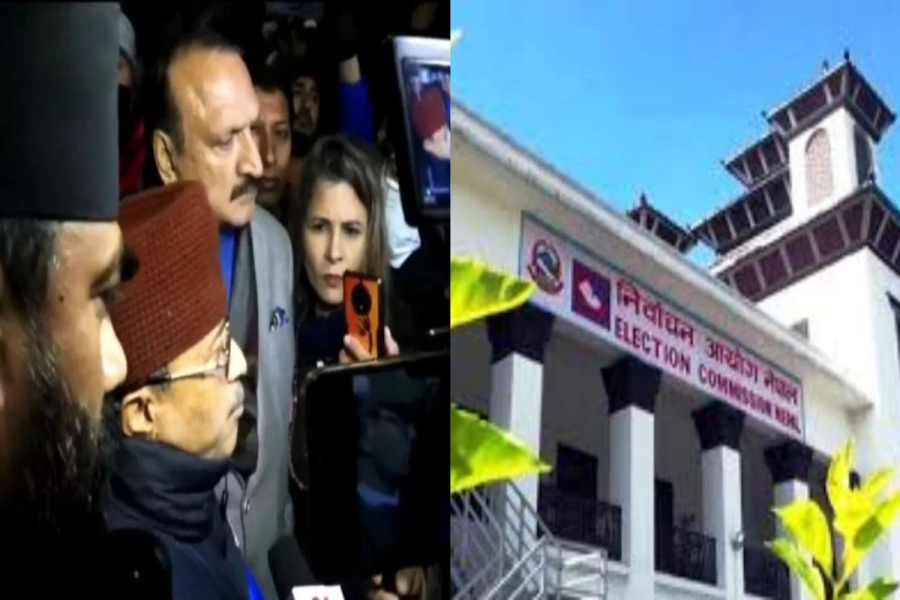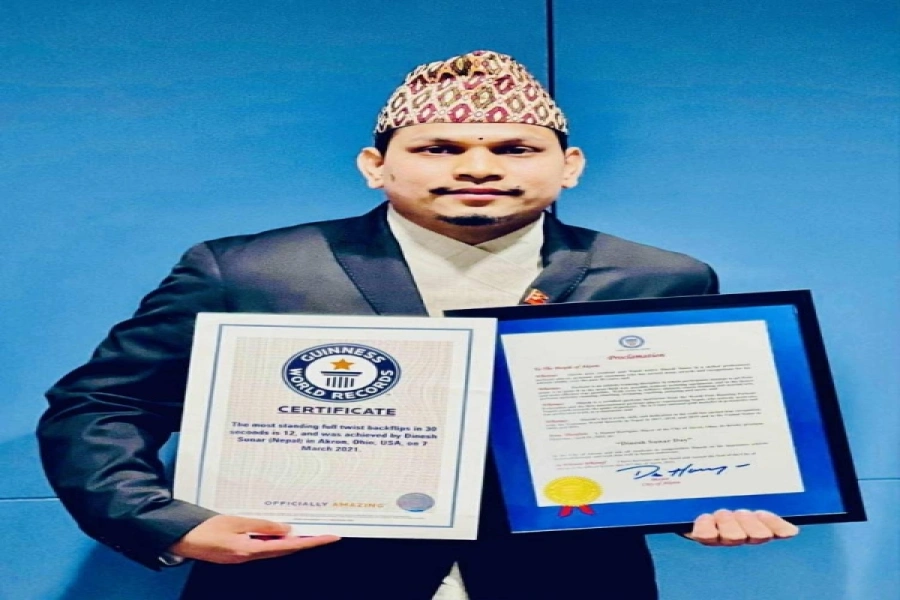China’s interest in Nepal goes beyond proverbial Tibet concern and ‘one China policy.’ It is as much about diluting aggressive Indian interest in Nepal
Prime Minister KP Sharma Oli has mixed baggage, as a person and as a communist leader. He came to limelight from Jhapa Communist Uprising. Naxalite Movement of West Bengal had inspired Nepali communists in adjoining Nepal’s district of Jhapa. Communist presence in Kathmandu and western Nepal was poor at that time. In the 70s, Nepali communists started killing the ‘feudal lords’ to assert their existence in Nepali politics.
Communist contribution in popular revolution of 1950 was almost nil, compared to the role Nepali Congress played to end Rana rule and pave the path for democratic politics. King Tribhuvan supported Congress to oust Rana initially but played negative role once the revolution met with success. Overthrow of democratically elected government of BP Koirala by King Mahendra is one example. In fact, the 1960 coup was orchestrated by some power hungry communists and Congress opportunists who instigated King Mahendra to wrest power from democratic forces.
During the days of absolute monarchy, China stood behind against the direct hegemonic influence of India in Nepal. This hegemonic influence later turned into direct Indian military surveillance along the Sino-Nepal border. Arrival of Indian Army in the name of training Nepal Army had undermined Nepal’s integrity and sovereignty.
Up until 2016, India was literally micro-managing political affairs in Nepal, which China resented. China is said to have worked from behind the scene to bring two communist forces—then CPN-UML and Maoist Center—together to form electoral alliance. Communists then swept all three elections—local, provincial assembly and federal parliament—and now they are in the government with more than two third majorities support. In 1960, it was King Mahendra to support China. Today, it seems, KP Sharma Oli is there to safeguard Chinese interest in Nepal.
Perils of communist state

Oli is seen as a ‘pro-China’ leader as he opted to diversify Nepal’s trade and transit with China during his rule in 2016. Most Nepalis supported his move because the blockade had not only undermined Nepal’s independence and sovereignty but also subjected people to untold suffering.
With two communist forces becoming one and Federal Socialist Forum Nepal joining the government, Oli’s position has become stronger. Now Oli rules from the grassroots to the center.
Worldwide, communists have risen to power through violence. We have witnessed this in Nepal on more than one occasion. Maoist insurgency resulted in deaths of around 17,000 people, leaving thousands of others displaced and homeless. Given their inclination toward authoritarian rule, many question, if communist leaders will be able to promote full democracy in Nepal.
China’s interest in Nepal goes beyond proverbial Tibet concern and ‘one China policy.’ It is as much about diluting aggressive Indian interest in Nepal. Since the days of 12-Point Agreement, Indian hegemony had increased in Nepal. China was clearly not happy with this development.
The global powers like China and British India were Nepal’s partners in its development. The autocratic rulers pleased to prolong their regime. Independent India has given continuity to this legacy to promote its interest in Nepal.
China was comparatively weak to influence Nepal in the past, but situation is different today. The geopolitics has changed with change in the power dynamics in this part of South Asia. Prime Minister Oli must be aware of this.
India is proactively working to maintain its influence in the neighborhood. Sino-Indian rivalry is not only limited to contesting power in Indian Ocean and South Asia. With support from US, Japan and Australia, India is trying to change the geopolitical features of Asia-Pacific into Indo-Pacific. The Sino-Indian strategic influence is overriding South Asia. It will be difficult for Nepal to ignore the interests of big powers.
It should be recalled that before visiting Nepal, Indian Prime Minister Narendra Modi had visited China. India seems to have been able to convince China that it should have greater influence in Nepal. So China has started to say India should be the main development partner for Nepal.
Nepal skipped Boao Conference this year. Nepal has not yet explained why it had to skip such an important meeting. But there is a reason to believe that Nepal did so to please India. Oli was called for India visit just two days ahead of the conference. Nepal also failed to take part in Shanghai Cooperation Organization (SCO) conference of which it is a ‘dialogue partner’.
This raises some questions. Why did communist government of Nepal not participate in Boao conference? Why did not Nepal participate in Shanghai Cooperation conference? Is China slowly and subtly ignoring communist government of Nepal?
Sino-Nepal relation has a long history. Our forefathers had managed relation with both neighbors tactfully. Prime Minister Oli should display some wisdom while dealing with China as well as India.
The author is security and strategy analyst






































